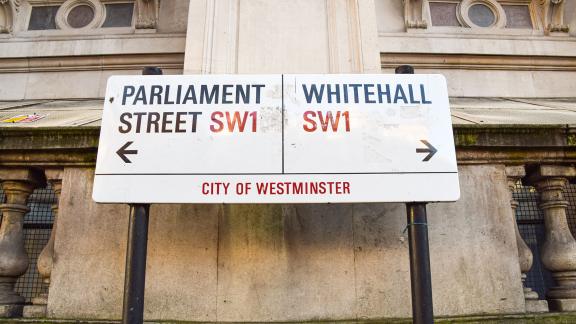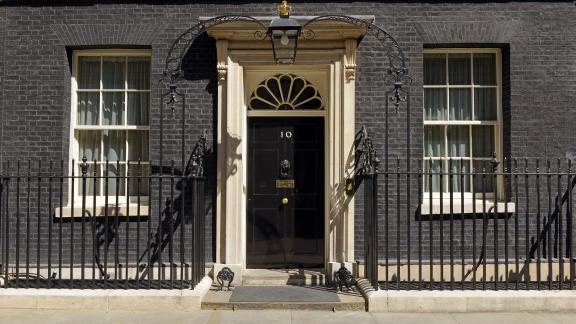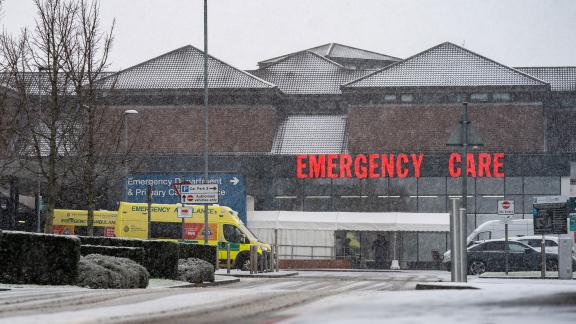Letter to Thérèse Coffey: Emergency support package for winter

Dear Secretary of State,
Emergency support package for winter
We are writing to congratulate you on your appointment as Secretary of State for Health and Social Care; a role that you enter at a time when the NHS is facing extreme challenges.
The NHS Confederation is the membership body that represents the whole healthcare system in England, Wales, and Northern Ireland. Our members employ 1.5 million staff, care for more than one million patients a day and control £150 billion of public expenditure.
As with your predecessors, we hope to form a constructive relationship with you and want to support you and your team by providing insights from NHS leaders across hospital, ambulance, mental health, and community trusts; primary care networks and federations; and integrated care systems. We have convened private roundtables of our members with ministers and would be pleased to do this for you. Our membership spans the entire NHS system which means we get a broad range of perspectives.
Turning to the immediate challenges we face, we were pleased to hear your clear and early recognition about the scale of these challenges. For some time, we have been calling for a ‘realism reset’ from political leaders on these pressures.
We welcome yours and the Prime Minister’s commitment to setting out an emergency plan, and we stand ready to support you in achieving the impact that is needed in the coming days and weeks.
We recognise your early prioritisation of ‘ABCD’: ambulances, backlogs, care and doctors and dentists. Set out below are our members thoughts on what is needed to support these priorities.
Ambulance delays
As you will appreciate, ambulance delays are a signal of pressures that exist elsewhere in the system and are a huge worry for our members. The latest NHS performance statistics show how ambulances dealt with the busiest summer for the most serious ‘category one’ callouts, with cases up by a third on pre-pandemic levels but with the worst response times. No healthcare leader or member of staff wants to be in a situation where patients are having to wait long for support or when ambulances are having to queue up outside of hospitals because the beds are not available for their patients. The system is buckling under the strain of this level of demand and needs your urgent attention.
Recent analysis shows that 1 in 7 beds in hospital is taken up by someone who is medically ready to go home but cannot be discharged, including due to a lack of available care package. To improve ambulance handovers, more support for patients to leave hospital is crucial. The previous Discharge to Assess funding was hugely successful in this area, freeing up to 30,000 hospital beds and the equivalent of 6,000 staff, which is why health leaders were extremely disappointed that it abruptly came to an end at the start of this financial year despite their pleas.
Backlogs
With backlogs, the NHS has worked hard to ensure that virtually everyone who had been waiting two or more years for an elective procedure received one, with many hospitals delivering this before the July target. This shows that with the right investment and support, the NHS can deliver. The NHS is now prioritising its patients who have been waiting 18 months, but leaders fear that with current and anticipated pressures, this is going to be very difficult to achieve.
Also, there needs to be recognition of the other backlogs that risk crippling the NHS. For example, there are 1.6 million people waiting for mental healthcare and more than one million people, including hundreds of thousands of children, waiting for healthcare services in the community. We recommend that your emergency plan includes a serious focus on addressing backlogs across all parts of the NHS, not just for elective care.
Our members are clear that the key barrier to further progress over the coming months is the lack of capacity in the system due to the 132,000 vacancies across provider trusts, alongside thousands of roles unfilled across primary care and GPs leaving the profession. NHS leaders warn us that winter pressures will absorb all additional capacity available due to care needs from flu and COVID-19. This will mean the NHS will have to continue to work flat out just to stabilise current performance levels. Innovations in this area are underway, but capital investment and boosting workforce capacity is critical to ensure continued progress on tackling the care backlogs.
Another key limiting factor for productivity is the state of the NHS estate, with nine in ten members recently telling us the lack of capital investment is undermining their efforts to reduce waiting lists. It is also impeding them from working as efficiently as they otherwise could. Ensuring investment in capital in the NHS will boost productivity, support the NHS to get through its care backlogs and ensure patients can access the best possible treatment and support.
Care
NHS leaders agree that extra investment in social care, particularly in social care pay to drive recruitment and retention in a system that has at least 165,000 vacancies, would be one of the best and most effective actions you could take to reduce pressure in the NHS.
Our members recently called for the introduction of a national minimum care worker wage of £10.50 an hour to reduce the flow of social care workers to other, better paid sectors. This was identified as the number one priority for addressing capacity issues across the health service. To achieve the best value for the taxpayer and provide the maximum possible support to the NHS this winter, action to support social care is needed within the next few weeks.
However, this investment must not be at the expense of the NHS budget. NHS funding has already been eroded by soaring inflation and the lack of additional funding to cover the much needed pay award for staff. This means that the NHS is facing a real-terms funding cut that could stretch to £9.4 billion this year.
Beyond social care, we recognise your priority to increase the number of appointments available to patients – particularly in primary care. The efforts of our members to address access issues have been considerable – with more appointments taking place in primary care in July than in the same month before Covid in 2019. This is despite patients having more complex needs and there being a shortage of around 4,200 full-time equivalent GPs.
Doctors and dentists (workforce)
The NHS desperately needs a fully funded medium and long-term workforce strategy. This should include extra investment for pay for health and social care workers to help stem the flow of those leaving the two sectors. We urge you to avoid the situation we are facing this year whereby the NHS is having to cover the recent higher-than-planned pay award out of existing budgets, which is further eroding the budgets of NHS organisations.
We welcome the positive noises coming from your government on the need to address the pensions crisis which is preventing many senior medical staff from taking on additional shift work. We set out to the previous chancellor the urgent steps that would correct these pension and taxation problems and urge you to make this an early priority.
We also need to see more specific support for NHS staff working in the community, which should include immediate action to increase mileage rates (and increase tax allowances which have been frozen for 12 years). This is because community staff are often out visiting patients in the community and they rely on their own cars. Our members tell us many community staff are walking away from their jobs due to soaring fuel costs and we need to address this quickly or risk exacerbating the staffing crisis we are already experiencing.
More generally, we welcome the attention you intend to give to the NHS’s workforce, particularly after everything they have been through during the pandemic. We would encourage you to look beyond ‘doctors and dentists’ given the NHS employs over one million people across a variety of roles and professions and so, attention on all of these as part of the workforce strategy is needed.
This is particularly true in primary care, which has moved on from being a service based around GP appointments. Their teams are made up of multidisciplinary professions providing a broad range of services that keep people well in the community and away from hospital. In your support for the NHS this winter, it is vital that you get this across, to aid public understanding around the value of the care they receive from primary care professionals beyond solely GPs.
Supporting NHS local leaders
Although it has not been directly referenced in your early priorities, we encourage you to empower local NHS leaders with the autonomy they need to make decisions in the interests of their local communities. This principle was at the heart of the reforms that your government legislated for earlier this year. We are very supportive of these reforms and believe that you have a rare consensus within NHS leadership on the direction of travel. We urge you to support these reforms as we work to embed them fully at a local level.
Finally, the NHS is under scrutiny like never before. Public finances are constrained and the outlook is extremely challenging. However, there is still widespread public support for the NHS and a desire among the public to provide the service with the tools it needs to get performance back on track. As such, we firmly believe the NHS continues to be an investable proposition and has the potential to be a key part of a future economic growth strategy, should local partners be given the space to develop.
We look forward to your emergency plan for the NHS and will do all that we can to support its delivery. We hope that you can take on board the points we have made above. We would welcome the opportunity to meet with you and your team to discuss the work of our members and their priorities in more detail. If that is of interest, Caitlin Plunkett-Reilly (externalaffairs@nshconfed.org) from our external affairs team would be happy to explore dates.
Yours sincerely,
Lord Victor Adebowale CBE
Chair
NHS Confederation
Matthew Taylor
Chief Executive
NHS Confederation



